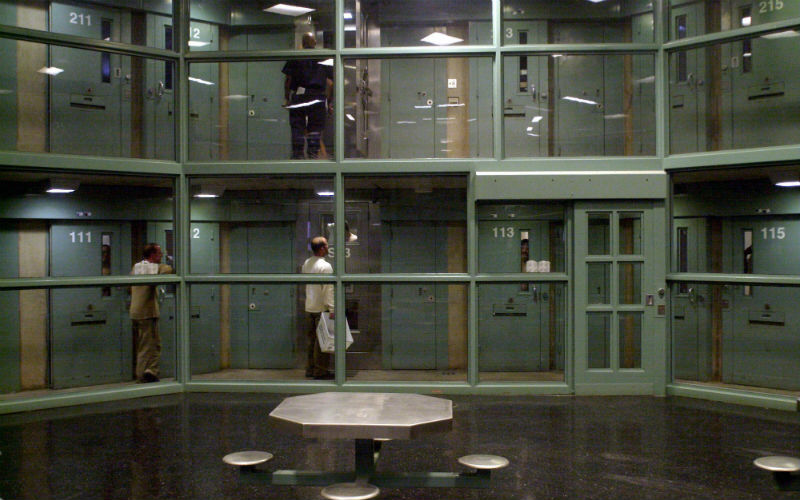
In the midst of news coverage about Elliot Rodgers and the Santa Barbara mass murders that he committed, The Washington Post published a news story that alarmed and saddened me.
According to the article, the parents of Blaec Lammers became concerned after the 20 year-old purchased an AR-15 rifle and admitted that he was having homicidal thoughts about going to a local movie theater or Wal Mart to shoot people. He had been diagnosed with a serious mental illness.
Lammers’ mother called the police in their hometown of Bolivar, Missouri, (population 10,000) who came to the family’s home and arrested him. His parents wanted their son to get treatment. That’s not what happened.
His father never expected him to face serious prison time. Blaec Lammers, his father said, “was for the most part a peaceful, easy-going person.” In March 2014, after a bench trial, a judge sentenced Blaec Lammers to 15 years for first-degree assault and armed criminal action.
Making judgments based on a news story is risky, but if the article is accurate then this is questionable justice and a sorry example of what can go wrong when law enforcement officers and our criminal justice system come into contact with someone who has a mental illness. Lammers needed help and treatment, not punishment.
I am a strong proponent of Crisis Intervention Team Training. Every police department and sheriff’s office should make CIT training available for its officers. My wife, Patti, and I donated $500 annually for several years to our local NAMI specifically for a CIT award to encourage CIT training in local police departments. I know CIT saves lives.
However, even in communities which have CIT trained officers, persons with mental illness have been fatally shot. There also appears to have been a rash recently of disturbing incidents where individuals with mental illnesses have died at the hands of law enforcement officers who have gone unpunished.
Consider the decision of jurors in Fullerton, California, who refused to punish two police officers who were caught on video fatally beating Kelly Thomas. In a disturbing video, Thomas can be heard pleading for his life. He had been diagnosed with schizophrenia and was homeless. That incident suggests that the general public considers the life of a homeless person with mental illness being worth less than those who aren’t sick or living on the streets. I wonder if the jurors would have reached the same verdict if Thomas had been more like them.
In Fairfax, Virginia, where I live, prosecutors took no action against a police officer who fatally shot David Masters while he was sitting in his truck stopped at a traffic light. Masters had a mental illness and had taken flowers from a local business without paying for them when officers confronted him. The officer was later quietly fired.
Police shootings are becoming all too common. As I am writing this a reader sent me a link to a story about a mentally ill man who was killed by police two nights ago in Norfolk, Virginia, after his family called for help. A 17 year-old boy who was threatening suicide ran at the police two weeks ago in the county adjacent to mine. He had a knife and was fatally shot.
In mental health circles, it’s not unusual to hear someone talk about how mental illnesses are treated differently from physical illnesses. If someone is having a heart attack, you call an ambulance. If someone with a mental illness is acting out, the police are called. This is why CIT is important, but let’s stop for a moment and ask ourselves a simple question. Why is calling the police our only option?
The medics riding in an ambulance are coming to save a life. The police are responsible for protecting the public. There’s a difference in those two motivations. This is why we need crisis centers, such as the ones operating in San Antonio, Texas, and Philadelphia, Pennsylvania, where mental health professionals can access and help individuals in crisis. We need mobile crisis response teams that can react appropriately too. Most of all we need a mental health system that can deal with emergencies, hopefully, with no police assistance.
Blaec Lammers’s parents should have had other options. Until we recognize that, we are going to continue having incidents where persons with mental disorders are arrested, seriously injured or fatally beaten or shot.



